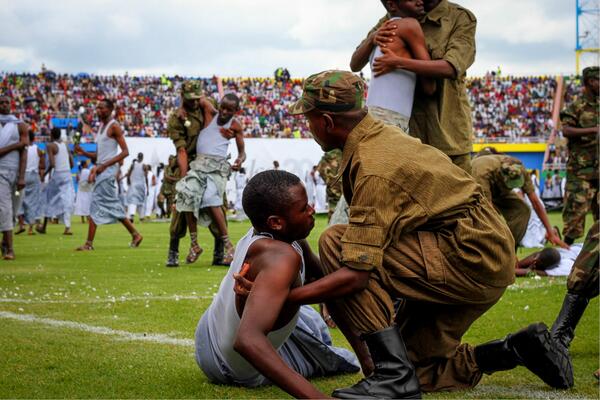Rwandan Genocide: Twenty Years On

ALSO READ: Lessons From Rwanda: Yannick Tona's Story of Survival And Activism
World leaders commemorated the anniversary by speaking out about issues of human rights and current crises in Africa and around the globe.
United Nations Secretary-General Ban Ki Moon said in an op-ed in The Hindu on Monday that despite the brutally violent conflict in the Central African Republic, the country still has the opportunity to "walk the same path" as Rwanda towards development and healing "after unspeakable violence."
Ceremonies and commemorations are also expected to be held around the world, including in Los Angeles.
USC's Shoah Foundation Institute, a global leader in genocide studies and genocide testimonies, is holding a vigil event revolving around the themes of "Remember, Unite, Renew." The vigil is part of the Institute's "Genocide Awareness Month" programming for April 2014, which has featured conversations and testimonies from survivors of the Rwandan genocide.
ALSO READ: Celebrating Rwanda: On Development And Holidays In East Africa
Nearly one million people died during the ethnic conflict in the central African country, where majority Hutu nationalists engaged in a campaign of genocide and destruction against Tutsis and other minority groups over a period of nearly four months.
ALSO READ: The Rise Of Rwanda's Grassroots Film Industry
The genocide in Rwanda ended after international pressure and the overthrow of Rwanda's Hutu government by Paul Kagame's FPR rebels.
Kagame is currently Rwanda's president, having taken office officially in 2000.
See photos from the commemorations throughout Rwanda at The Big Picture.
Reach Associate News Editor Colin Hale here. Follow him on Twitter.



